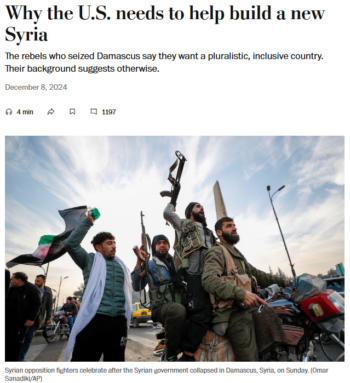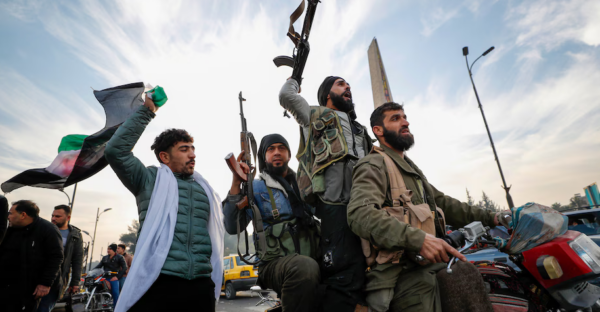June 26, 2024 by Pablo Meriguet
The Kenyan officers arrived to Port-au-Prince to establish the UN-authorized Multinational Security Support Mission to fight against gang violence in Haiti
400 Kenyan police officers arrived on June 25 in Haiti’s capital, Port-au-Prince. The deployment of 600 more is expected to follow in the coming days and weeks. The arrival of the Kenyan police force was authorized by the United Nations Security Council, which last year approved the dispatch of foreign law enforcement forces to the Caribbean country. The dispatch occurred the same day that Kenyan police killed eight protesters in Kenya who were protesting the unpopular neoliberal Finance Bill 2024. The armed mission in Haiti supposedly to stop the advance of gangs, which in recent months have controlled, according to some estimates, up to 80% of the territory of the capital and many other surrounding areas. Foreign police agents will be allowed to detain Haitian citizens with the local police.
Kenyan President William Ruto said a day before their deployment, “Our police officers’ presence in Haiti will give relief to the men, women and children whose lives have been broken by gang violence. We will work with the international community to bring lasting stability in Haiti.”
The mission was announced in a White House communiqué, which affirmed that the mission is fully supported by the United States and several other countries. The new military intervention in Haitian territory is intended, according to the same statement, to bring into Haitian territory about 2,500 police and security personnel: “I congratulate, and am deeply grateful to all the countries that have committed personnel and financial support for this mission that will eventually have a multinational staff of 2,500, led by Kenya and including Benin, Jamaica, Bahamas, Belize, Barbados, Antigua and Barbuda, Bangladesh, Algeria, Canada, France, Germany, Trinidad and Tobago, Turkey, the United Kingdom and Spain. For our part, the United States is the largest financial contributor to this mission, providing more than USD 300 million and up to USD 60 million in equipment. And we will continue our diplomatic outreach to encourage more countries to join this effort because what happens in Haiti is in the interest of its neighbors, the region, and the world.”
Following the resignation of Haiti’s de facto president and prime minister Ariel Henry, who took over after the assassination of Jovenel Moïse, Ruto’s government had announced a temporary halt to the deployment but continued ahead shortly after.
Ruto challenged Kenyan courts to achieve deployment
Kenya’s president, William Ruto, who engineered the agreement, had to maneuver through several major legal obstacles to achieve the troop deployment yesterday. Diverse sectors in Kenya, especially the judiciary, had lodged serious challenges to his unilateral agreement. At the end of January, the High Court in Kenya declared the deployment of personnel to Haiti unconstitutional, ruling that the country’s National Security Council did not have the authority to deploy police officers outside the country. The order was the extension of
interim measures first issued by the court in October, which Kenya’s parliament defied to authorize the mission. Ruto’s government obtained such authorization, but the Kenyan High Court stated that a “reciprocal agreement” is required for the sending of troops not to be considered a unilateral “invasion.” In the end, Kenya
reached an agreement with Haiti on March 1, 2024.
Kenyan Lawyer Wallace Nderu, a member of the International Commission of Jurists (CIJ), had told VOA that despite having an agreement between the two countries, the act is problematic, as there are questions about the legitimacy of the President of Haiti: “The reason for this request is that when the then Prime Minister of Haiti was signing this agreement with Kenya, there was no recognized government in Haiti. The president [Jovenel Moïse] had been assassinated, there were no elected leaders in Haiti. So where does this lead, the mandate to negotiate an agreement on behalf of your country, Haiti, is in question.”
Set up to fail?
Another concerning aspect of the deployment raised by analysts is whether the Kenyan police will even be able to carry out effective operations in Haiti. The Kenyan officers do not know the territory and do not speak the language spoken by the local population. The gangs now have very established positions in the capital and other areas and it is possible that openly confronting the armed groups could lead to an exponential increase in violence and increased hardship for the civilian population. Notably, the vast majority of the weapons used by the gangs are smuggled from the United States.
In addition, the Kenyan police have been singled out and accused by several human rights organizations such as Human Rights Watch, of having committed excessive acts of repression and extrajudicial executions in Kenya. The police carried out brutal repression against the ongoing anti-government protests on the same day that the first units landed in Port-au-Prince. According to the International Peoples’ Assembly, “The deployment of the Kenyan police force, who are trained by Israel, comes at a moment when the people of Kenya are mobilizing against the neoliberal policies of the US-backed government in the country.”
In August 2023, Amnesty International wrote an an open letter to the Security Council, expressing its concern: “There is a troubling record of abuses and impunity associated with previous multinational or foreign interventions in Haiti, such as the cholera epidemic, unaccountable sexual exploitation and abuse, and excessive use of force.”
No to foreign military occupation
The mission has also been widely condemned by movements and organizations in Haiti, Kenya, and across the world as another instance of foreign intervention in the Caribbean country.
In a statement released by ALBA Movimientos, they said, “All of the missions that entered Haiti have left negative results. They brought economic setbacks and deepened the social crisis of the Haitian people. Only the Haitian people will decide the solution to the current situation and only a democratic and sovereign resolution to the crisis, without meddling, can guarantee peace, stability, and well being for the majority. We make an international call for the defense of Haiti and respect to the self determination of its people: out with any ‘mission’ of occupation.”
Haiti has a long history of foreign invasions that have failed to solve the serious problems the country has faced since it was isolated and forced into debt by western powers, such as France and the United States, immediately after its anti-slavery and independence struggle (1791-1804).
Almost a century later, in 1915, Woodrow Wilson, president of the United States, ordered the invasion of Haiti to protect the interests of the companies that invested money in the Caribbean country. The presence of the Marines lasted until 1934, a period during which the occupying US armed forces carried out several massacres of peasants and anti-colonial political leaders.
Between September 28 and October 8, 1937, around 15,000-20,000 Haitians were killed by the army of the neighboring Dominican Republic under the rule of Rafael Leonidas Trujillo. From 1957 to 1971, Francios Duvalier, better known as Papa Doc, governed Haiti as a dictator with the open support of the United States. His son, Jean-Claude Duvalier, Baby Doc, succeeded him in office until 1986.
In 2004, former US Attorney General, Ramsey Clark, proved that the US and Dominican Republic governments were involved in supplying weapons and military training to several Haitian rebels, which would provoke political and social chaos that served as a pretext for the 2006 UN Blue Helmets occupation of the country until 2017. The United Nations Stabilization Mission in Haiti (MINUSTAH) was responsible for grave atrocities, including massacres, mass rape and the introduction of cholera into the country, leading to the death of 30,000 people.
In the coming weeks and months, more Kenyan police as well as troops from other countries will continue to arrive in Haiti and the “security mission” will begin to embark on its uncertain fight against gang violence. Faced with this reality, the people of Haiti have vowed to continue their struggle against foreign occupation and for true national sovereignty and respect.
This article originally appeared in Peoples Dispatch on June 26th, 2024
Please support the news you can use and visit The Brooks Blackboard's website for more news!
Take a look at my brief bio about my writing life and on social media:
Facebook page: The Brooks Blackboard
Twitter: @_charlesbrooks




.png)
.png)
.png)






.png)
